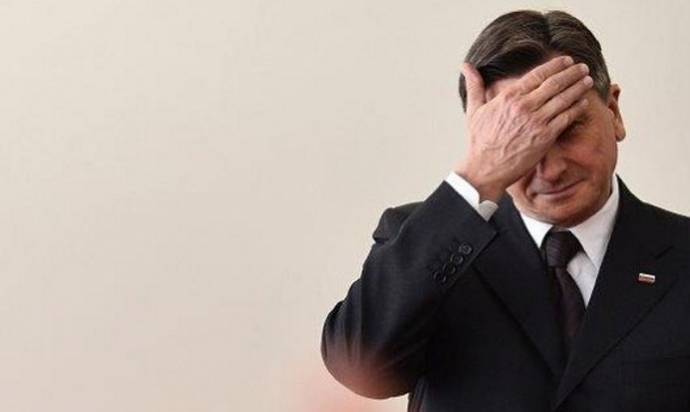All our election coverage can be found here, while our profiles of the major parties are here.
The winner's options for forming the new government coalition will be discussed, said Pahor, who expects the National Electoral Commission to present the official results of the election at the end of next week.
"I expect to sign the decree on the formation of the National Assembly next Friday, so the maiden session of the new parliament could be held on 22 or 23 June.
"As soon as the National Assembly is formed in line with the Constitution, MPs will form deputy groups. I will meet their leaders as soon as they inform me of their consultations on who could be formally put forward as the prime minister candidate," Pahor said.
He would like a new and successful government coalition to be formed this summer, so that it could start tackling domestic and foreign political challenges in the autumn.
Pahor maintains that it is right that the relative winner of the election gets the first chance to form a government, so that the "voice of the people is heard".
The president noted that after 1992 Slovenia had sometimes gotten a government within 60 days after election and sometimes in three months or more. There were also cases when the relative winner of election failed to form a government or failed to do so in the first attempt.
"My wish is for the voice of the people to be so clear that it would quickly become clear not only who the relative winner is but also what the ruling coalition could be," Pahor said.
He called on everyone who would take part in the talks on the new government to be tolerant and patient.
The head of the Democrats (SDS), Janez Janša, whom public opinion polls named the winner but whom most parties openly rejected as a potential coalition partner, said he doubted that the election result would bring stability immediately.
But it would be a first step towards this end, he said as he cast his ballot in Šentilj pri Velenju.
He expects the election to trigger more fragmentation, and restructuring on the left. "I suppose we'll have to wait a while for all these turbulences to calm down before serious talks on the new government are possible," Janša said.
A runner-up in the polls, Marjan Šarec, said the best possible outcome would be if his party was given the opportunity to form a government. "But considering the fact that we're a new party and we haven't operated on the national level yet, we'll be happy to make it to parliament," he said.
Outgoing Prime Minister Miro Cerar urged the citizens to go to polls as he cast his ballot in Ljubljana but would not answer to any journalist questions. A call for a high turnout also came from Speaker Milan Brglez.
Other leaders mostly expressed confidence that their parties would achieve the desired results.







